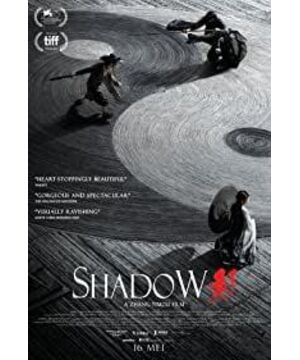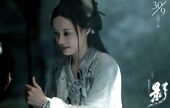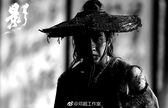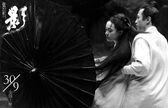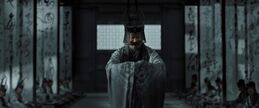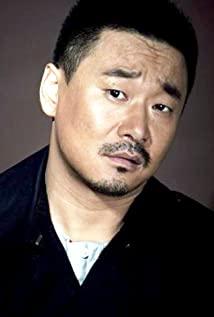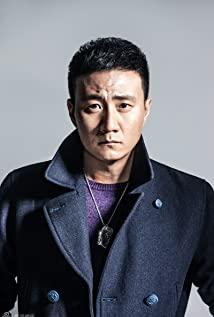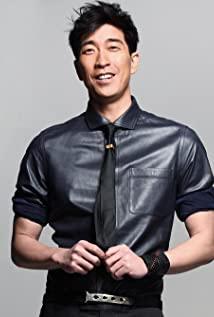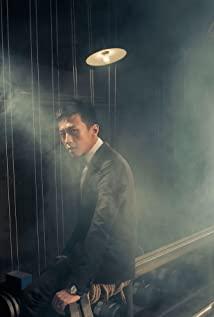On the evening of September 6, local time, the new film "Shadow" directed by Zhang Yimou held its world premiere at the 75th Venice Film Festival. At the same time, the film festival awarded the director Jaeger-LeCoultre Glory (Jaeger-LeCoultre Glory) in recognition of his creative spirit in the creative process and his contribution to the original development of contemporary films.
After being awarded to Kitano in 2007, Zhang Yimou is the second Asian to win this award. To this end, the Venice Film Festival Organizing Committee also gave Zhang Dao a lot of face. The former chairman of the awards, Alberto Barbera, said in particular: "We (Venice) once again welcome the return of this great Chinese director."
And Zhang Yimou mentioned in his acceptance speech that Venice is a very cordial place. Many of his films have premiered here and have won many honors. He hopes that there will be more opportunities to come here in the future.
Obviously, the appearance of "Shadow" in Venice this time, for Zhang Yimou, it feels like "returning to her family". In the words of movie fans, he can be regarded as a senior member of the Venice Film Festival.
Indeed, as the leader of the fifth generation, Director Zhang Yimou has a deep connection with the Venice Film Festival. He won the Venice Golden Lion Award twice for his "A Lawsuit Against Qiu Ju" and "No One Less". There is no doubt that he is a pivotal filmmaker in the history of the Venice Film Festival.
After 19 years, director Zhang Yimou once again brought his new work "Shadow" to Water City, which also attracted strong attention from local Chinese. I remember that on the opening day of the film festival, I met a Chinese traveling in Italy outside the film palace.
She said that she had been living in Venice for a long time, and the scenery of Venice in the 1990s was infinite. At that time, director Zhang Yimou and Gong Li were both high-spirited. It seemed that those ten years were also the golden ten years of the film festival. She feels that the current film festival is a bit sluggish, and she also hopes that the return of director Zhang Yimou will give the festival a new lease of life.
Now, "Shadow" is finally available. When the film ended, there was applause for five minutes in the movie palace. What impressed me was that the little Italian brother sitting next to me remained stunned.
At this moment, I also breathed a sigh of relief inexplicably; obviously, Zhang Yimou did not let us down this time. Everyone's love for this new film is beyond words. To some extent, it may be called a masterpiece. .
It is commendable, this is a film that redefines traditional Chinese aesthetics. At the press conference in the afternoon, Director Zhang Yimou mentioned that his previous films were full of rich colors, and colors were like his logo.
We have often said that there are three directors who like to use red most in the world, Akira Kurosawa from Japan, Almodovar from Spain, and Zhang Yimou from China. From "Red Sorghum" to "Raise the Red Lantern", from "Hero" to "Jinling Thirteen Hairpins", Zhang Yimou's arms seem to be inseparable from the rich colors forever.
Perhaps it is because his mentality has been quietly changing over the years. Lao Mouzi said that in fact, he himself prefers the color of "Shadow", which is very Chinese, very similar to traditional Chinese ancient paintings. For so many years, he has always wanted to make ink-and-wash movies, and has always had such an impulse, this time he finally fulfilled his long-cherished wish.
The story of the film "Shadow" is adapted from the work "Three Kingdoms Jingzhou" by the screenwriter Zhu Sujin. On the whole, it looks like an ink painting style Shakespearean play. The characters in the film are dressed in ink-and-wash clothes and perform a moving epic of revenge in a time and space that is drawn from the Three Kingdoms and elevated to history. There are both "King Lear"-style tragic sacrifices and "Macbeth"-style gloomy tactics.
After experiencing the setbacks of the Great Wall, Zhang Yimou once again chose the tragic and joyful fate of the characters under the social turbulence and power struggle. Different from the protagonists in the old Lao Mouzi costume movies, this time I started with an ordinary and extraordinary character, and he must make a fuss about the twists and turns of his life.
The director said that martial arts movies have always been his favorite movie genre. He has filmed "Heroes" and "Ambush on All Sides" before. Recalling that after the media session in the morning, there were comments that the film was a bit like Kurosawa Akira's "Shadow Samurai", and now is the 20th anniversary of Kurosawa's death. In the dark, the two directors had a certain intersection in the scattered time and space.
The national teacher who is accustomed to scenes with thousands of people, high saturation, and large color blocks finally put away the richness this time, focusing on the interlocking relationship between the characters. Compared with the linear development and loosely connected character relationship construction in the past, the plot promotion of "Shadow" is almost entirely dependent on the establishment and break of the character relationship chain.
The characters in the film have their own ghosts, each with their own calculations, but they face their own constraints. The king of Pei, the master son Yu, the avatar Jingzhou, Yu's wife Xiaoai, the enemy general Yang Cang, the military commander Tian Zhan, the princess Qingping, etc., are like chess pieces on a Go chess board, guarding their own "qi". In particular, the main characters in the film Ziyu and Jingzhou, the original relationship between the lord and the substitute, because the shadow and the reality are seamlessly integrated, it is difficult to distinguish the true from the false, which leaves Jingzhou's breath of reversal.
Without the golden color in "The Golden Armor on the Ground" and the thick green in "Ambush on Ten Sides", the overall beauty of "Shadow" has returned to the vigorous spirit of "Hero" in 2000. In the tones that are close to black and white, the seemingly monotonous but in fact there is an infinite transition of gray between black and white. It is not a single black and white picture, but a classical picture like ink and wash.
The most outstanding convenience of the film is that director Zhang Yimou combined the unique Chinese style aesthetics with grand philosophical propositions to form a unique "yin and yang aesthetics." Freehand brushwork in landscapes, either black or white; Tai Chi and Eight Diagrams, mutual generation and mutual restraint. Revenge is in yang, and standby is in yin; the sword is yang, and the umbrella is yin.
This time, Zhang Yimou has actually created a wonderland of black and white game, which embodies the binary opposition everywhere in the film, black and white, advance and retreat, male and female, water and stone, literary and martial arts, evil and masculine, Ziyu and In Jingzhou, the film even directly moved the gossip array to the war scene to form a confrontation scene.
In addition, the fluidity of Tai Chi is also reflected in the use of "water" in the film. The dynamic feeling of the waterfall confronts deathly silence in the battle, enriching the overall audio-visual language; Xiao Ai and Jingshu are in the rain, holding a paper umbrella, dancing in the raindrops like flowing water, using the body as a symbol, which is more complicated than tedious. The lines are more contagious.
It is worth mentioning that the story of "Shadow" takes place in Peiguo and Jingzhou. Zhang Yimou made full use of this geographical advantage. He placed the capital of that era in a depression surrounded by mountains and rivers, and embellished it with rain and rain, which truly created a special artistic conception like Chinese ink painting.
In the scene of conquering the city, the director's imagination reached the limit. The soldiers in the siege fought fiercely in the rain with umbrellas made of blades. It was as romantic as Toki Fung, and it reminded me of the situation when I watched Akira Kurosawa's movie.
And what is "shadow"? In the film, Deng Chao plays two roles, the lord Zi Yu and his stand-in Jingzhou. Ziyu Yin bird of prey is sinister, dry and thin; Jingzhou is masculine and brave, heroic, two completely different faces. Fortunately, Deng Chao once again revealed the acting qualities of a "drama lunatic", and once again broke through the limits of his role following the "Scorching Sun" three years ago.
In the film, the hysteria of the master son Yu, which is enchanted by magic, is rendered vividly by Deng Chao. As a stand-in for Jingzhou, he is Ziyu's mission and also Ziyu's shadow. Jingzhou's contradictory identity made him ask himself "who am I" this Nietzsche-style philosophical proposition many times.
Ziyu and Jingzhou were originally the relationship between the lord and the substitute. It is precisely because the shadow and the reality are seamlessly integrated, it is difficult to distinguish the true from the false, which leaves the last breath of Jingzhou's reversal. What's more difficult is that Deng Chao not only has to compete with "Deng Chao" himself, but also watch another "Deng Chao" linger with his wife.
As director Zhang Yimou said, the movie "Shadow" was also shot specifically for the profession of acting as a substitute. Little known, it is the fate of the substitutes, but at the same time, the uniqueness of this profession is obvious to all.
Taking the destiny of the substitute and the complicated human nature as the original creative impulse undoubtedly broadens the possibilities of the film. Similar to the fact that water can form a smudged gray to ink and wash, the face and lining of a substitute can also form a unique personality.
In the film, when Jingzhou Gang Ziyu has completed his mission, what value and significance does he have for Ziyu? Can shadow become a shadow? The sighs and questions that were born as a substitute are swayed in the ink and wash full of artistic conception.
In my opinion, Director Zhang Yimou is still an innovative director, and this innovation is perfectly embodied in his craftsmanship and imagination.
First of all, this time director Zhang Yimou used the Soochow water battle during the Three Kingdoms period as the source of the story. Therefore, the background of the revenge siege was a continuous rainy environment. According to this weather condition, Pei Umbrella became a proper prop. In the process of making Pei Umbrella, the director personally participated in the design, striving to strike a balance between Pei Umbrella as a weapon and rain gear.
Secondly, in the duel between Jingzhou played by Deng Chao and Yang Cang played by Hu Jun, director Zhang Yimou used the Tai Chi formation. The visual effects of Tai Chi Tu are very beautiful. Every offensive and defensive action of the two men on the Tai Chi Tu is like showing the essence of martial arts. The broad sword is the most powerful weapon, while the Pei umbrella has no sharp edges. Only seemingly non-aggressive weapons can weaken the rigidity of the broad sword.
Finally, there are indoor props that incorporate ink-and-wash styles. As we all know, Director Zhang Yimou is a particularly sophisticated director in photography. In order to make the style of the whole film sufficiently uniform, the director specially visited the printing and dyeing factories with exquisite craftsmanship in Jiangsu and Zhejiang, only for the cloth and screen of the clothes in the film to be under the effect of light. It presents an effect that seems to be transparent and hazy.
Since the style of "Shadow" tends to be dramatic, it requires extremely high abilities of the actors. But I think young actors including Guan Xiaotong and Wu Lei have done their best to contribute effective acting skills. Most importantly, the performance of each character makes me feel believable.
Because Deng Chao played the two roles of Jingzhou and Ziyu, he completed the change of body shape in a short time during the filming process. This kind of professionalism is admirable. At the same time, he also grasped the different characteristics of the two characters, so that we can smoothly understand the plot of the story.
Alternating between binary and opposite roles not only requires actors to be clearly thin and physically strong, but also must be distinct in character, way of thinking, and position of the characters. Deng Chao is able to reach the audience in the film. The imperceptible clone, probably no one will dare to say again, "I want to laugh when I see Deng Chao on the big screen."
In the film, Zheng Kai, who plays Peiliang, cooperates with director Zhang Yimou for the second time after "The Great Wall", playing the image of a monarch with a smile in his face. In the words of the director, Zheng Kai's line skills are very powerful. Moreover, in order to fit the character of the emperor who loves calligraphy and hates war as much as possible, he has also practiced cursive script for a period of time, incorporating the sway of cursive script into the character.
The role of Yu's wife Xiaoai, played by Sun Li, is a key figure in the film. Although there are not many scenes, every match between her and Deng Chao is enough for me to see the emotional tension with a sense of hierarchy. Following the "Biography of Zhen Huan", it has been a long time since Sun Li was so devoted to a role.
Guan Xiaotong and Wu Lei share two relatively young and innocent roles. They used very age-appropriate performances to bring a different feeling to the film, adding a relatively brisk element to this tactical story.
Throughout the whole film of "Shadow", director Zhang Yimou's unremitting pursuit of the beauty of form makes me have to respect it. Especially this time, the Chinese style he incorporated into the film is more extreme than any previous film.
As he said, “The subject matter of traditional culture is very important in the creation of Chinese films. China is the only ancient civilization in the world that develops linearly and has no cultural rupture and loss. The reason why I still want to talk about traditional culture is to let young people People see Chinese traditions. "Shadow" is a Chinese ink painting and a symbol of traditional culture. I hope to use "Shadow" to convey our traditional culture and beauty."
After the premiere of "Shadow", this Venice Film Festival has finally come to an end. On September 30th, domestic audiences will soon see this new work by Lao Mouzi. I believe you will not be disappointed this time.
Author|McLwren, Peter Pan
Official Account | Watching a movie and seeing death
Edit | Riding a Rooftop Boy; please indicate the source for reprinting
View more about Shadow reviews


